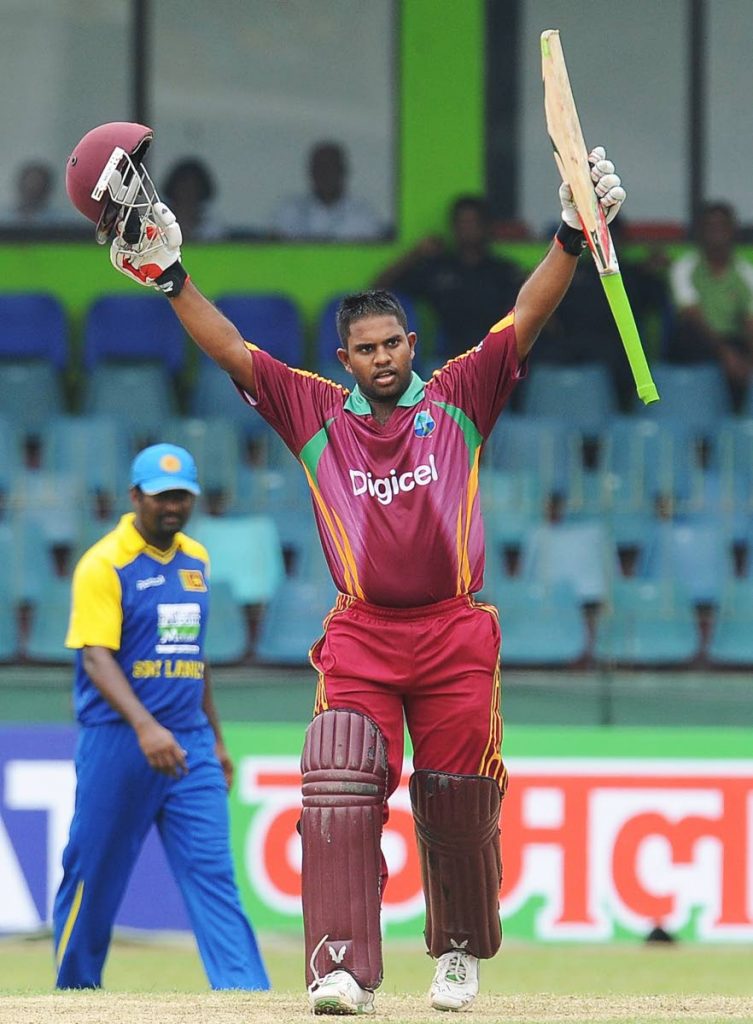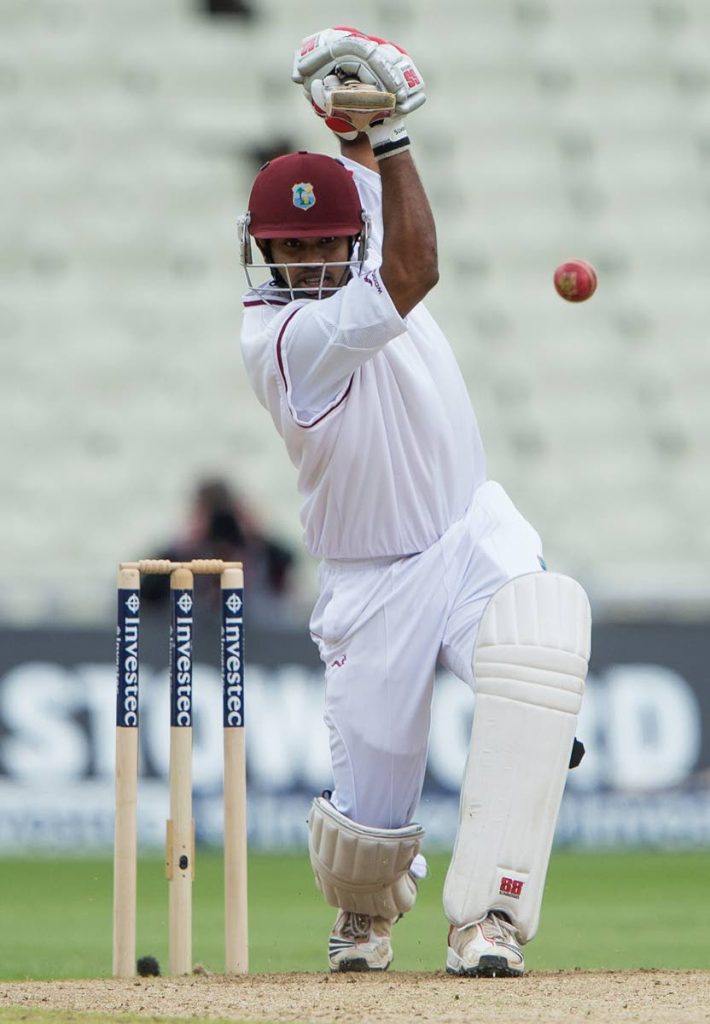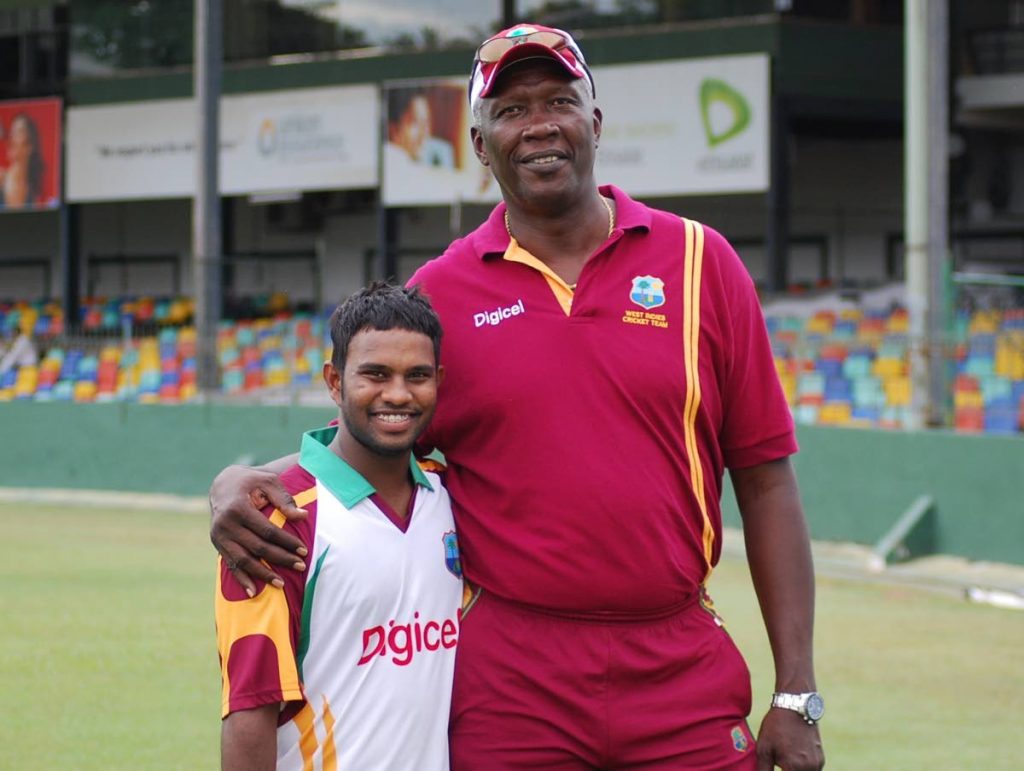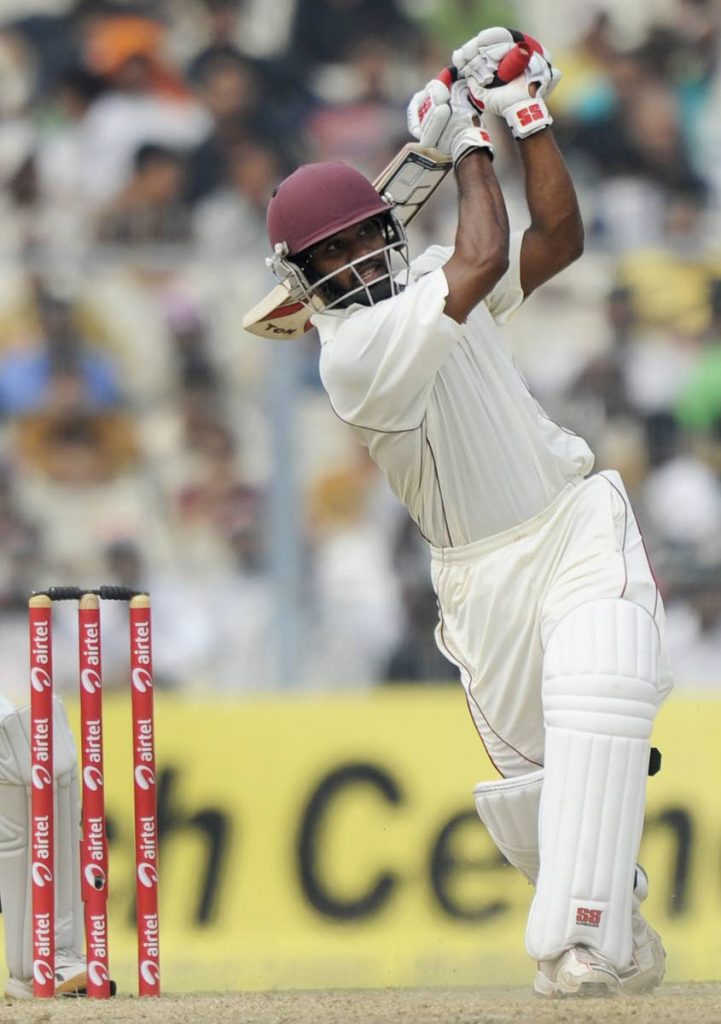The cricket prodigy who chose Jehovah

THE Bible says it is easier for a camel to pass through the eye of a needle than for a rich person to enter the kingdom of God.
For a talented cricketer, a strict interpretation of the New Testament verse means forgoing millions of US dollars from lucrative Twenty20 tournaments around the world.
It’s been six years since Adrian Barath, now 30, turned his back on riches and glory to serve his God, as a devout Jehovah Witness.
The stars had already aligned for Barath and the world was there for the taking. The attacking opener was already the youngest West Indies Test centurion (at 19), had the stamp of approval from Windies legend Brian Lara, a US$75,000 Indian Premier League (IPL) contract under his belt and was driving a Range Rover– when he seemingly had an epiphany in 2014 and walked away from the game.

Despite repeated attempts by cricket stakeholders to lure him back, Barath has remained steadfast in his faith, no longer showing interest in cricketing glory but instead giving glory to God.
While still a junior cricketer nurtured at Clarke Road United, Barath’s immense potential became known regionally after an MVP performance at the Clico West Indies under-15 tournament title, where he scored 429 runs in five matches to lead TT to the title.
At age 16 he had already made his senior debut and was the second youngest West Indian to score a first class century.
When he was 11, Lara saw him batting in the nets at the Queen’s Park Oval with his father Ralph, and quickly recognised the star burning within the child.
The former West Indies captain took Barath under his wing and took him at 17 to England to watch a few matches and be his guest at a function at Lord’s. The Prince of Port of Spain had virtually crowned the young prodigy, and the world waited for Barath to walk in his footsteps.

But in 2014, Barath shocked the region by deciding to take a one-year hiatus from the game.
His first-class form throughout that season was poor: he failed to score a half-century and averaged a meagre 20.37.
His 2013 four-day season was barely better, with three fifties and a modest 23.00 average. It was clear he was going through a rough patch, and he had already lost his place on the West Indies team. Apart from his lean run with the bat, a nagging hamstring injury seemed difficult to overcome. The young confident batsman, with a Test, ODI century and over 3,000 first-class runs, seemed a shell of himself. In November 2012 he sought the assistance of the legendary Windies opener Gordon Greenidge to recapture his form but his struggles persisted.
A slump is no cause for serious alarm for a cricketer, as form is temporary but class is permanent.
But what few people knew was that Barath’s focus had already begun to shift from the gentleman’s game.
Out in the middle, anticipation, awareness, hand-eye co-ordination and foot movement were hallmarks of an in-form Adrian Barath. But his mindset had began to change from imposing his will on opposing bowlers to following God’s will.
Former national selector Lalman Kowlessar, who coached Barath while he was a student at Presentation College, Chaguanas, remains stunned by Barath’s decision but has come to accept it.
He said, “Few people would make that choice eh. He had glory in front of him, he had money before him, but he chose his God...If he had continued in cricket he would have been a rich man today, but we have to accept his choice.
“Although people would be disappointed, he has a fantastic life before him. He is young, he is heavily involved in Jehovah’s Witness, his family is Jehovah long time and his wife too.”
Kowlessar refused to take any credit for Barath’s success, instead praising the role of his father.
“There’s nothing I could have taught Adrian Barath. His only coach was his father.”
Recalling Barath’s mercurial talent with the bat, Kowlessar said he was unlike anything he had witnessed before.
“Adrian was definitely, in my opinion, the best batsman to pass through Presentation College, and I was there since 1956 as a student. His ability to concentrate for long periods, fantastic. His technique was out of this world, for instance his cover drive – he used to be way low down and used to keep the ball on the ground. His technique was one of the best I have ever seen.”
As a national youth cricketer, Kowlessar said he and many others had already marked Barath for greatness.
“I first saw him when he played for North Zone as an under-14 cricketer. He was with Darren Bravo. He was from central zone, but he ended up playing with north zone. There was only one problem, his running between the wickets.
“I knew he was going to play for the West Indies. When he played for TT Under-15s, he scored I think two centuries, and I remember the Jamaican coach remarking that this young man was going to play for West Indies one day.

“I remember he went with me as a 14-year-old to Barbados. When he was batting Gary Sobers was at the game and he was very impressed. He said, ‘This fella has the hallmarks of a future West Indian great.’”
Kowlessar said he was delighted when in 2009 Barath made the West Indies team and cracked a boundary-filled 104 on debut against Australia in Brisbane. The Chaguanas native stroked an astonishing 19 fours in his knock – 73 per cent of his tally.
“I was overjoyed, over the moon, when he scored that century. The school was in an uproar. He used to score hundreds at will. He was a batsman you couldn’t find fault with at all.”
Former Red Force captain Denesh Ramdin, who played in that Test match, recalled his words of advice to the teen on tour.
“I told him, don’t think about the process, just bat and it will come. Don’t go into a shell, keep batting positive and play your shots,” Ramdin said.
The wicketkeeper-batsman said Barath had no real flaws in his game and was proficient against any attack.
“He was a very attacking, stylish player. He didn’t have any preference, he was capable of batting both pace and spin. We used to call him ‘young Sachin’ for the type of shots he used to play.”
Kowlessar and Ramdin said they were both bewildered to learn he was quitting the game temporarily.
Kowlessar, then a national selector, said, “I was surprised. The last year I think he was considering whether to continue playing or to follow his church, his God. I was disappointed. I remember we had a practice at the Oval, Trinidad team, I was a member of the selection committee and I asked him, ‘You available?’
He said, ‘Yes, sir, I’m available.’
“When I went in the next day to pick the squad with the other selectors, lo and behold the chairman presented an e-mail in which (Barath) indicated he wanted a year’s sabbatical – and that was it.
“I was very disappointed. We were extremely close. He chose his God and I don’t think we can fault him for that. He has found his calling.
“He was on top of the world. He would have been a fixture on the West Indies team. Like all cricketers, he would have his ups and downs, but he was a fabulous cricketer, not only a cricketer, but a human being. His discipline was fantastic, his relationship with his team members, you couldn’t fault him.”
Ramdin said he tried to persuade him to return to cricket, but Barath’s mind had already been made up.
“He wasn’t old. He was in his 20s, with a lot in front of him. I reached out to him, but he chose a different path. As captain of West Indies I reached out to him to make himself available for the national team.
“But I respect his decision and wished him all the best.”
In a brief interview with Newsday in 2019, Lara also expressed shock at Barath’s departure but said once he’s happy, that’s all that matters.
Newsday has repeatedly reached out to Barath to discuss his exit from cricket, but he has always politely declined.


Comments
"The cricket prodigy who chose Jehovah"